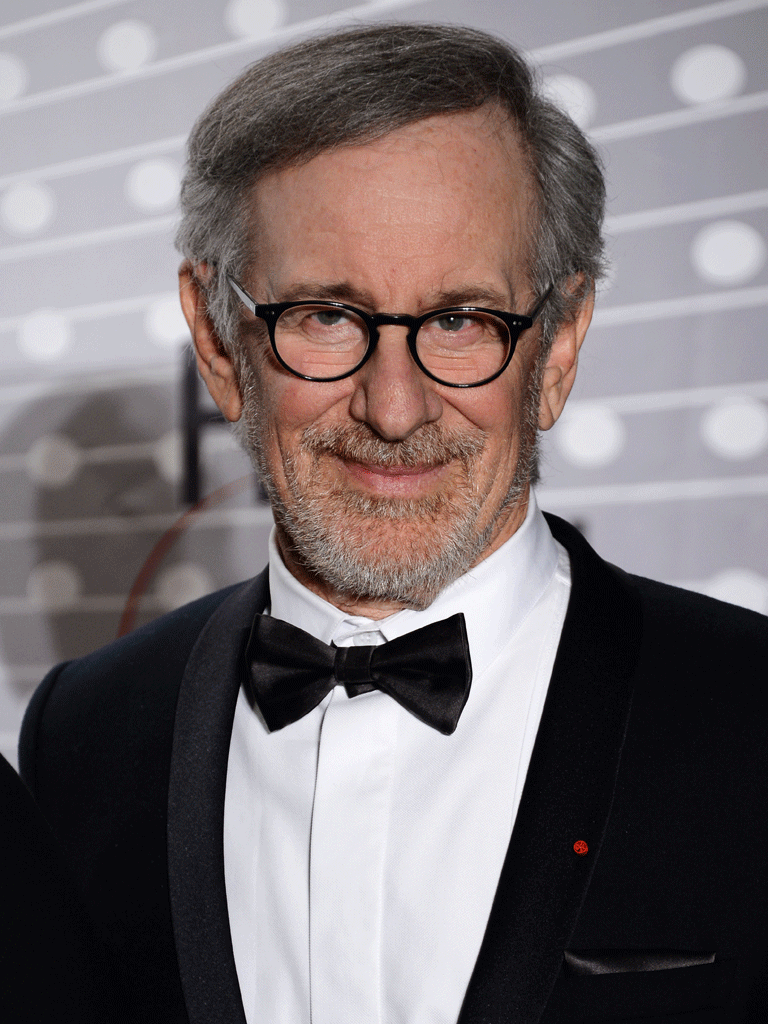Steven Spielberg help sought to create new British Holocaust commemoration

Your support helps us to tell the story
From reproductive rights to climate change to Big Tech, The Independent is on the ground when the story is developing. Whether it's investigating the financials of Elon Musk's pro-Trump PAC or producing our latest documentary, 'The A Word', which shines a light on the American women fighting for reproductive rights, we know how important it is to parse out the facts from the messaging.
At such a critical moment in US history, we need reporters on the ground. Your donation allows us to keep sending journalists to speak to both sides of the story.
The Independent is trusted by Americans across the entire political spectrum. And unlike many other quality news outlets, we choose not to lock Americans out of our reporting and analysis with paywalls. We believe quality journalism should be available to everyone, paid for by those who can afford it.
Your support makes all the difference.Steven Spielberg will be asked to help create a permanent British memorial to the Holocaust which will capture the audio-visual testimonies of all the survivors of Nazi persecution who forged a new life in the UK.
The film director sent a message of support to 400 survivors of the Holocaust and Nazi persecution who gathered at Wembley Stadium for a consultation staged by the cross-party Holocaust Commission, announced by David Cameron in January.
The Commission was set up to investigate what more needs to be done to ensure Britain has a fitting memorial to the Holocaust and the right resources to educate future generations about the genocide, in which an estimated six million Jews were killed.
Spielberg, whose USC Shoah Foundation has filmed about 52,000 two-hour eyewitness accounts in 34 languages and in 58 countries, told the gathering: “The singular perspective of those who were there is vital. You are teachers of the next generation. The power of your stories is an inspiration to me and people the world over.”
Simon Hughes, Justice minister and a member of the Commission, said: “It is our intention to speak to Mr Spielberg. I think the Commission will want to create a group of volunteers who can capture these audio-visual testimonies from across Britain.”
The Commission is due to report its findings to David Cameron at the end of the year, in time for the 70th anniversary of the British liberation of Bergen-Belsen concentration camp in April 2015.
The guests, who included concentration camp survivors, those who fled to Britain on the kindertransport rescue mission, and those who were hidden from the Nazis as children, applauded calls for the creation of a new National Holocaust Museum in London.
Others, conscious of producing educational resources which will engage future generations for whom the events of the Holocaust may feel remote, called for the uploading of testimonies on YouTube and government resources to tackle Holocaust denial on Facebook.
Increased funding for educational visits to concentration camps in Eastern Europe was seen as vital. Renee Salt, 84, an Auschwitz-Birkenau and Bergen-Belsen survivor, said: “It is so important for children to go to Poland and see the camps and teach them what happened. Who remembers the Spanish Inquisition now? The Holocaust must not be allowed to be forgotten.”

Watch Apple TV+ free for 7 days
New subscribers only. £8.99/mo. after free trial. Plan auto-renews until cancelled

Watch Apple TV+ free for 7 days
New subscribers only. £8.99/mo. after free trial. Plan auto-renews until cancelled
After speaking to survivors, Simon Hughes said the Commission would need to propose imaginative new forms of commemoration. “Visual elements – TV and film – are more effective than the written word and active participation is more effective than passive attendance.”
“I spoke to a woman from Slovakia who wants to re-enact the journey she took from Auschwitz after liberation to Czechoslovakia. I think these kind of re-enactments, retracing people’s steps to their new countries could involve thousands of people.”
There was a lively debate among participants about the future of Holocaust education. Whilst some said Holocaust studies could be used to spread light on genocides in Rwanda and other countries others said the Holocaust was a unique event and must not be taught in a comparative context.
Join our commenting forum
Join thought-provoking conversations, follow other Independent readers and see their replies
Comments